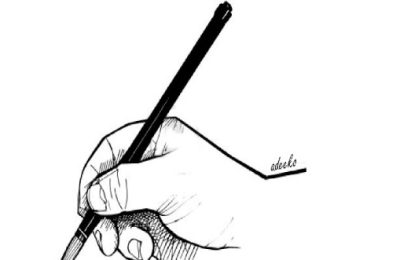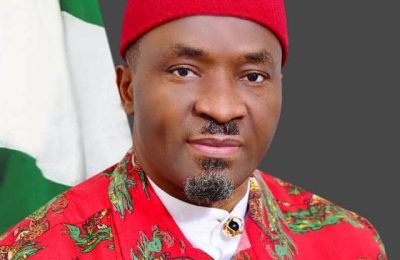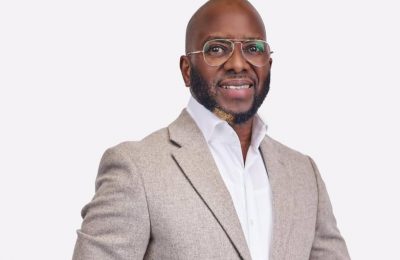Benin-born Nollywood screen diva, Linda Osifo, is one actress who keeps her game close to her chest almost all the time even when she doesn’t get enough credit and opportunity. With a number of movies under her kitty, Osifo, in this interview with SEGUN ADEBAYO, said the movie industry is yet to see the best of her.
At what point in life did you pick interest in acting?

Growing up, I had always been an active child and an individual that loves speaking in the presence of people. So, I was always very comfortable. At one point, I auditioned for a Christmas role. I was about 13 years old when I did this. I got the lead role and that was my first ever form of acting. I played the role of Mary which was so symbolic and seeing the crowd clap and seeing light shining on me as the talent on the stage and the audience dazzled me at that moment I felt comfortable in the zone and from then, everything started for me. Ever since then, I started going out to perform in plays at events that took place at church.
What has been the best and toughest part of your job as an actress?
The toughest part is how much time it takes away from me. The best part is that acting is a great adventure with vast opportunities that come with it. I’ve been on a journey where I just want to portray my gift and talent. The result I then get out of it, such as stardom and being a dynamic woman, is an additional blessing that feels amazing. I relocated to Nigeria from Canada only to pursue my career in acting and Nollywood is filled with diverse talents and to be recognized as a vital part of this great industry is an honour. I believe in hard work, tenacity and dedication. I also work at my own speed, so I am not comparing my journey with others.

How did you land your first acting role?
I got my first major acting gig in 2014, and it launched in 2015. This was one year after my stay in Nigeria. I was at a stage where I was sort of getting tired because nothing was really coming through. It was a project I had with Ebony Life and it was for a franchise TV show called Desperate Housewives. It was a big deal for me and I had told myself that if I got this, I was going to stay in Nigeria forever.
Why did you think it was a deal breaker for you?
It was like a negotiation between God and I, but if it wasn’t, I’d go back and figure something out because Nigeria was already getting stressful. So I went on the last day of the audition and the first thing that discouraged me was the number tag that they gave me. I was number 606. So I was discouraged. But, I went into the audition and decided to audition for a character that was minor because I knew so many people would go for the major character. My performance made one of the people conducting the audition cry and I had to beg her to stop. At that moment, I knew something had happened. Subsequently, I got a call back.
How has auditioning and getting roles been for you?
The journey was extremely stressful and I had moments where I felt when I didn’t get callbacks, it would definitely give me sad moments.
When the calls never came, how did you manage to muster courage for another audition?
Most times, when I got callbacks, I’d think it was something major but it was extra. I was just an extra in the background of the commercial but I was excited.
What would have happened if the call back had not happened?
So, I thought to myself that I’d still stay around and as time kept going, I kept auditioning. But you’ve got to find a way to learn how to get around those things. I believe my experiences as a teenager and the things I was doing in communities helped me a lot. So, I have had a background in activities that involved competitions.
Your industry is a competitive one. You have been around for sometime but it gets even tougher by the day. How do you feel?
The industry we are in is considered competitive; we are all trying to get something and everybody can’t do it at the same time, but it’s who best fits it. Now, things are getting better. I now have private auctioning.
Who are your biggest influences and inspirations in life?
My parents are my biggest influences and inspirations in life.
You’ve acted in many movies, which role has been the most challenging for you?
The most challenging role for me would be the role I played in ‘Devil in Agbada’ because it’s an action film. So there were moments we had to learn some stunts and do more physical activities than we would do in regular film or average drama. Another film is one entitled ‘Cities of Bastards’. It was the most challenging production, the most challenging character. We shot it in Makoko for almost three weeks. We stayed within the environment; we adapted to it and we all got sick. We all got another side of living; we became part of the people living there. After the project, we left with a different mindset. It was a project that taught us such an experience we didn’t know was going on in our everyday life.
Tell us a bit about your character in the new film WOKE that you starred in?
My character is called “Ejura”, in the movie WOKE, and released late 2022. I play an intelligent and passionate member of the police force trying to prove herself in a male-dominated occupation. Filming it was quite effortless because I had been waiting for roles like this, playing an intelligent woman determined to make a mark and a name for herself in her chosen career. I can relate to that. When the opportunity came, it was opportunity meeting preparation.
If you could change two things in the Nigerian film industry, what would they be and why?
If I could change anything in the Nigerian film industry, I would definitely ensure there is regulation of piracy and circulation of funds to create better movie productions.
READ ALSO FROM NIGERIAN TRIBUNE







